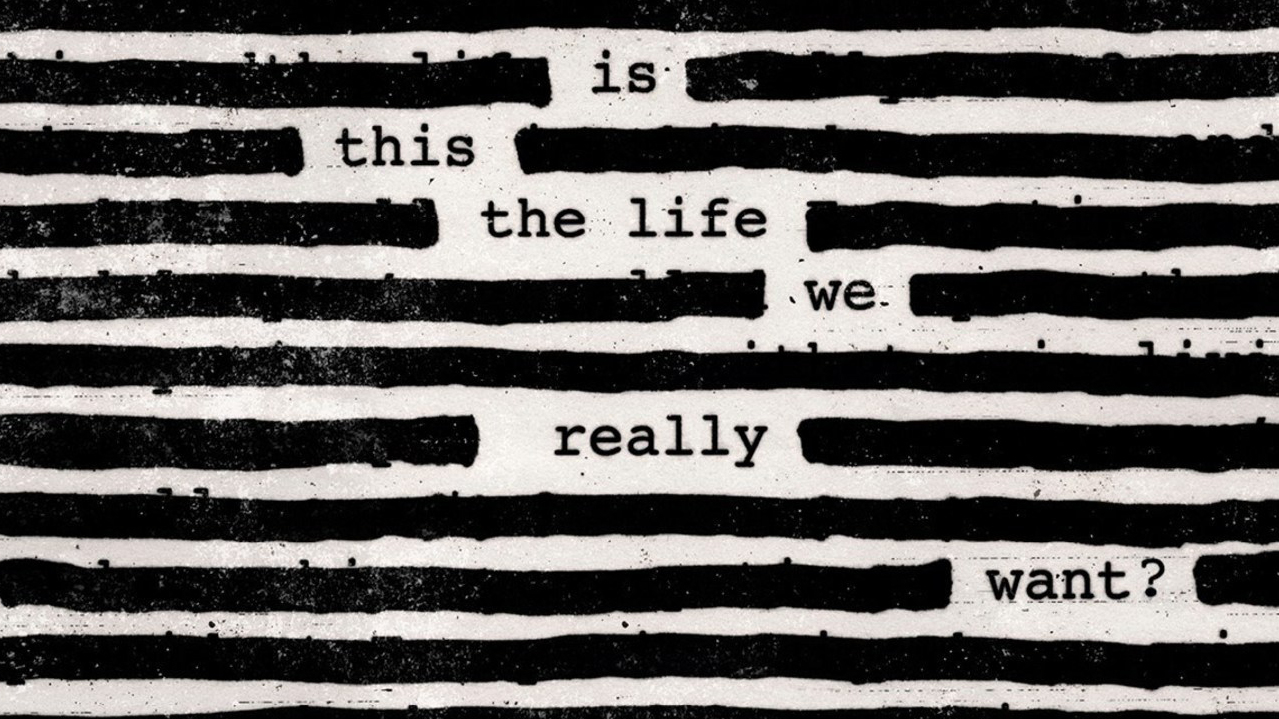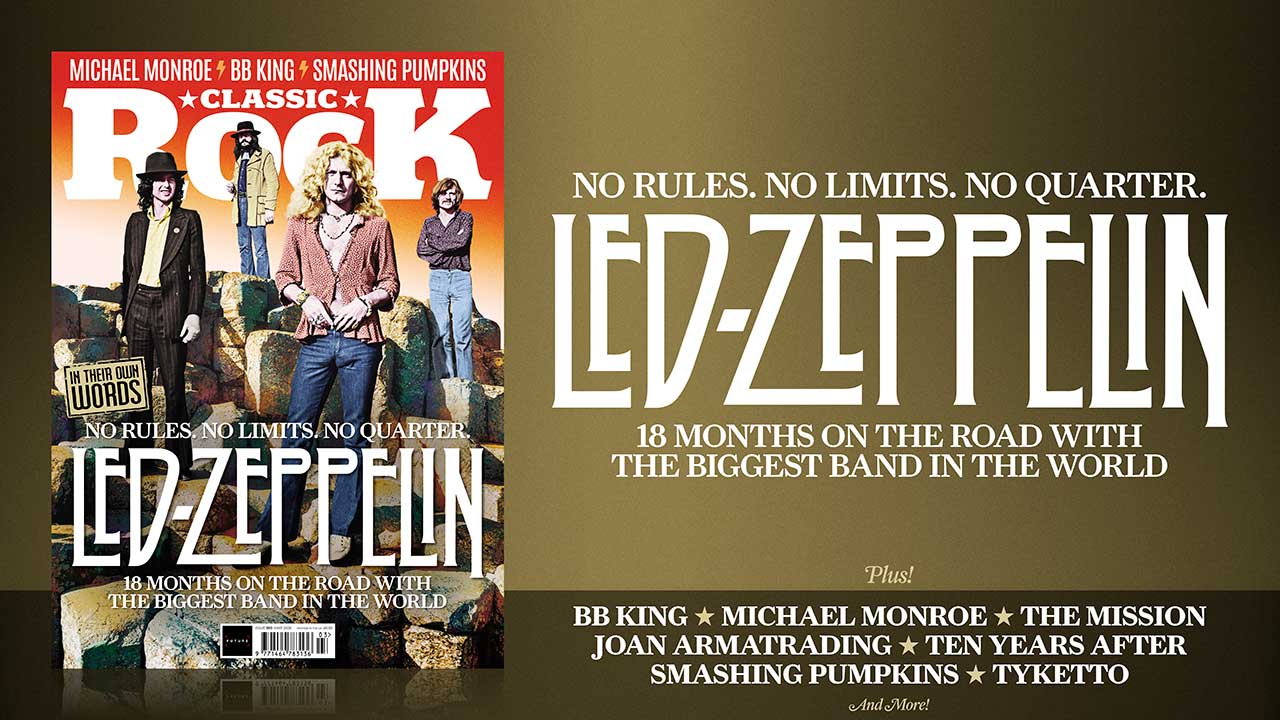You can trust Louder
It’s ironic that the former major‑domo of the quintessential stoner band should in recent years have recast himself as rock’s last angry man. We knew from their 70s output, from Dark Side Of The Moon to Animals and The Wall, that Pink Floyd specialised in a sort of melodic mordancy or ambient acrimony. And yet their rails against the system seemed designed to erase or raze your consciousness. Now here’s the Floyd’s main writer succeeding in raising it.
He’s doing it with his politicised concert spectaculars – The Wall Live, which made him the highest-grossing solo artist of all time, 2016’s Desert Trip performances, and forthcoming Us + Them tour, which he has described as “an exercise in resistance, not just to Trump, but to all the despots, dictators, thieves and ne’er-do-wells all over the world”. And now there’s his fourth solo album (not counting 2005’s three-part opera, Ça Ira), Is This The Life We Really Want?
The title may strike a note of reflection, even resignation, but what you get on Roger Waters’ first long-player since 1992’s Amused To Death is rancour, even rage. It’s a protest album, a series of howls of despair at a world that allows all kinds of injustice, from extremes of wealth and poverty (Déjà Vu) to the arrival of a ‘nincompoop’(as he calls him on the title track) in the White House.
All credit to Waters: he could easily be coasting on the nostalgia circuit in what is effectively the twilight of his career. Instead, he has chosen to go less than gently, despite the risk to his popularity. And although he might refrain from naming names, as he has done elsewhere with his controversial boycotting of Israel and defence of Palestine, it’s clear on Broken Bones (‘They bulldozed our homes to the ground’) who he considers the enemy.
It’s almost like he’s got Disgust Tourette’s: there are ‘shits’ and ‘fucks’ liberally splattered over the lyrics, as though he can’t contain his contempt. But it’s artfully done: Radiohead producer Nigel Godrich brings a dark, textured atmosphere to the simple acoustica. There are electronic touches, bursts of static, radio and TV voices, news bulletins and so on to heighten the sense of creeping contemporary dread, as well as weeping violins to highlight the drama.
Godrich’s presence is a reminder of Pink Floyd and Radiohead’s shared mission to use state-of-the-art technology to explore the more woeful recesses of the human condition. He creates the perfect context for Waters’ bleary-eyed missives, making him sound like Thom Yorke’s mightily pissed-off activist uncle.
Waters has called this a concept album, and it does have that coherence. But there is a downside: what you might positively spin as a lugubrious uniformity could be viewed more negatively as repetitively bleak. There are fillips for long-term fans. Picture That has the psych propulsion of One Of These Days Floyd, A Part Of Me Died features a Gilmour-esque descending guitar line, while Oceans Apart has elegiacal echoes of Wish You Were Here.
Sign up below to get the latest from Classic Rock, plus exclusive special offers, direct to your inbox!
Throughout, Waters affects a low, dolorous croon or a Dylan-esque sneer. Either that or he hoarsely shouts – all the better to express his inchoate fury. The songs are less varied, however, tending to chug along morosely, based around similar clusters of chords to David Bowie’s Five Years, which suits the apocalyptic foreboding but can make you long for a brightly coiffed alien androgyne to come along and break the monotone gloom.
Maybe it’s deliberate, to ram home the relentless awfulness of existence, whether it’s enduring racial prejudice (the title cut) or the horror of war (The Last Refugee). Still, for all its solemnity, Waters is clearly in his element, even if his Indian summer might coincide with our nuclear winter.
Besides, these are serious times, and you either respond with heads-down party music or with something grave like this. Is This The Life We Really Want? is sententious, tendentious, portentous and pompous – and those are the good things about it.
‘Don’t follow leaders,’ warned Dylan, but maybe Waters is proposing himself as one. Indeed, on Déjà Vu he imagines himself as God, wondering how differently he would have done things, surveying the History Of It All before modestly concluding, ‘If I had been given the nod, I believe I could have done a better job.’
Well, he is, officially, the biggest solo live attraction on earth…
Paul Lester is the editor of Record Collector. He began freelancing for Melody Maker in the late 80s, and was later made Features Editor. He was a member of the team that launched Uncut Magazine, where he became Deputy Editor. In 2006 he went freelance again and has written for The Guardian, The Times, the Sunday Times, the Telegraph, Classic Rock, Q and the Jewish Chronicle. He has also written books on Oasis, Blur, Pulp, Bjork, The Verve, Gang Of Four, Wire, Lady Gaga, Robbie Williams, the Spice Girls, and Pink.


